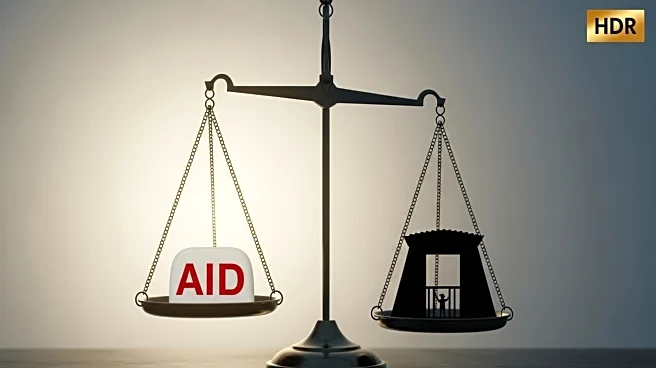What's Happening?
The Israeli government has informed the United Nations that it will reduce the number of humanitarian aid trucks allowed into Gaza due to delays in the release of deceased hostages by Hamas. This decision follows the return of only four out of 28 deceased hostages,
despite a ceasefire agreement that stipulated the release of all hostages within 72 hours. The reduction will see only 300 aid trucks, half of the agreed number, entering Gaza, with no fuel or gas permitted except for humanitarian infrastructure needs. The situation remains tense as Israel awaits the return of more deceased hostages.
Why It's Important?
The reduction in aid to Gaza has significant humanitarian implications, potentially exacerbating the already dire conditions faced by Palestinians in the enclave. This move reflects the complex interplay between humanitarian needs and political negotiations, highlighting the challenges in balancing these priorities. The decision may impact international relations and humanitarian efforts, as stakeholders navigate the sensitive issue of hostage releases and aid distribution. The families of deceased hostages continue to face uncertainty, adding emotional strain to the political and humanitarian landscape.
What's Next?
Israel is expected to continue negotiations with Hamas to secure the release of the remaining deceased hostages. The international community, including the United Nations, may increase pressure on both parties to adhere to the ceasefire agreement and facilitate humanitarian aid. The situation could lead to further diplomatic engagements or interventions aimed at resolving the hostage crisis and ensuring adequate aid delivery to Gaza.
Beyond the Headlines
The hostage situation underscores the psychological and emotional toll on families awaiting closure. The delay in returning deceased hostages prolongs their anguish, highlighting the human cost of political conflicts. This development may prompt discussions on the ethical responsibilities of parties involved in hostage negotiations and the broader implications for peace processes in the region.

















